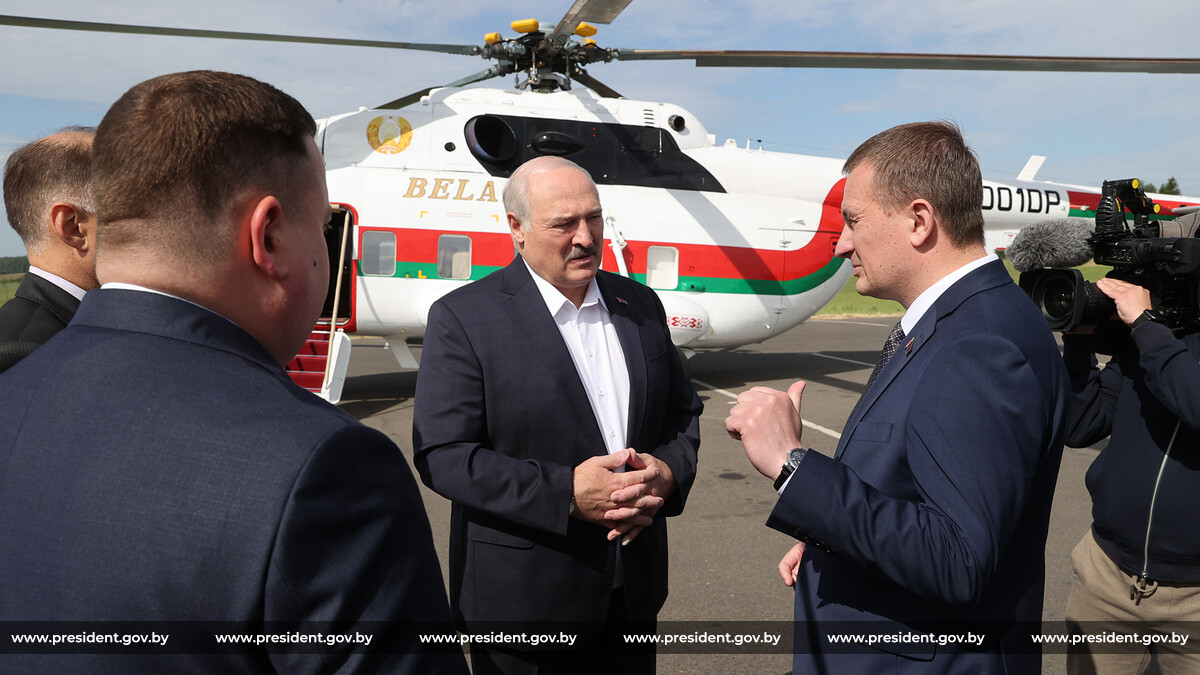Belarusian Regime Expands Artillery Ammunition Production amid Concerns of Russian Nuclear Deployment
 The situation got worse
The situation got worse

The Belarusian regime has plans to produce artillery ammunition to assuage the “shell hunger” of the Russian army due to the intensive use of artillery in the war in Ukraine. Lukashenka declares that a full-scale military invasion of Belarus is a “red line” and justifies the deployment of Russian nuclear weapons by the need to deter aggression against Belarus. Atomic weapons will be dispersed throughout the country, under joint guard. Any decision regarding use will allegedly be made by Minsk and the Kremlin jointly. The West still perceives this as rhetoric rather than preparation for nuclear escalation.
Lukashenka inspected the Precision Electromechanics Plant (Zavod tochnoi elektromehaniki) and chaired a meeting to discuss ammunition production. He also visited one of the production facilities of BSVT – New Technologies LLC.
In February, Lukashenka stated that Belarus was successfully developing modern weapons and mastering rockets and large-calibre artillery ammunition technologies.
At the end of last year, reacting to Russian shell shortages, the Belarusian authorities announced plans to commence the production of artillery shells and multiple rocket launchers (MLRS):
- First, to establish production of components, and then switch to full production of ammunition in 152-mm and 122-mm calibres.
- Second, to arrange the assembly of 122-mm, 220-mm and 300-mm rockets from imported components.
Lukashenka also ordered mass production of the largest Grad MLRS rocket (122 mm). He stated that the “Shkval” multiple launch rocket systems (modernised Soviet Grad systems on a Russian chassis, recently adopted in Belarus) are now in demand and solve “big problems at the front”, creating demand for ammunition. Shell production will soon reach full capacity, as Lukashenka demands production of up to 15 thousand rounds with an initial delivery of 10-12 thousand. More than 20 enterprises are involved in the supply chain, some private and some attached to the Ministry of Industry and the State Committee for Military Industry.
Lukashenka insists that deploying Russian nuclear weapons in Belarus is his decision and that Russia underpins the country’s security guarantees: “Hardly anyone will want to fight with a country that has such weapons – this is a weapon of deterrence.” However, he does not rule out using such weapons if “red lines” are crossed, by which he means a full-scale military invasion of Belarus rather than acts of sabotage such as that at Machulishchy airfield.
Lukashenka will decide on usage in agreement with Putin and in some situations without him. Belarus will receive nuclear missiles and bombs from Russia three times more powerful than those used against Hiroshima and Nagasaki. Nuclear weapons will be dispersed throughout the country, and Belarusians and Russians will jointly provide security.
Meanwhile, the United States has not yet detected the movement of nuclear weapons to Belarus. Washington regards these statements as “extremely irresponsible” rhetoric, and NATO has seen preparations for the movement of nuclear weapons, but the situation does not yet require changes to the nuclear posture of the alliance.
Western military analysts consider it unlikely that the transfer of nuclear weapons to Belarus signals Russian escalation. Instead, it is a part of the Kremlin’s long-standing efforts to consolidate Russian de facto military control over Belarus.
Subscribe to our newsletter




Situation in Belarus
Constitutional referendum: main consequences


 Video
Video
How to count the political prisoners: are the new criteria needed?


 Video
Video
Paternalism In Decline, Belarusian Euroscepticism, And The Influence Of Russia


 Video
Video












